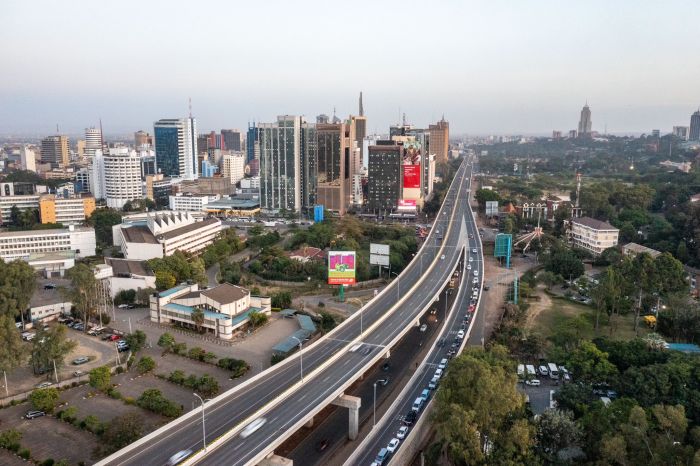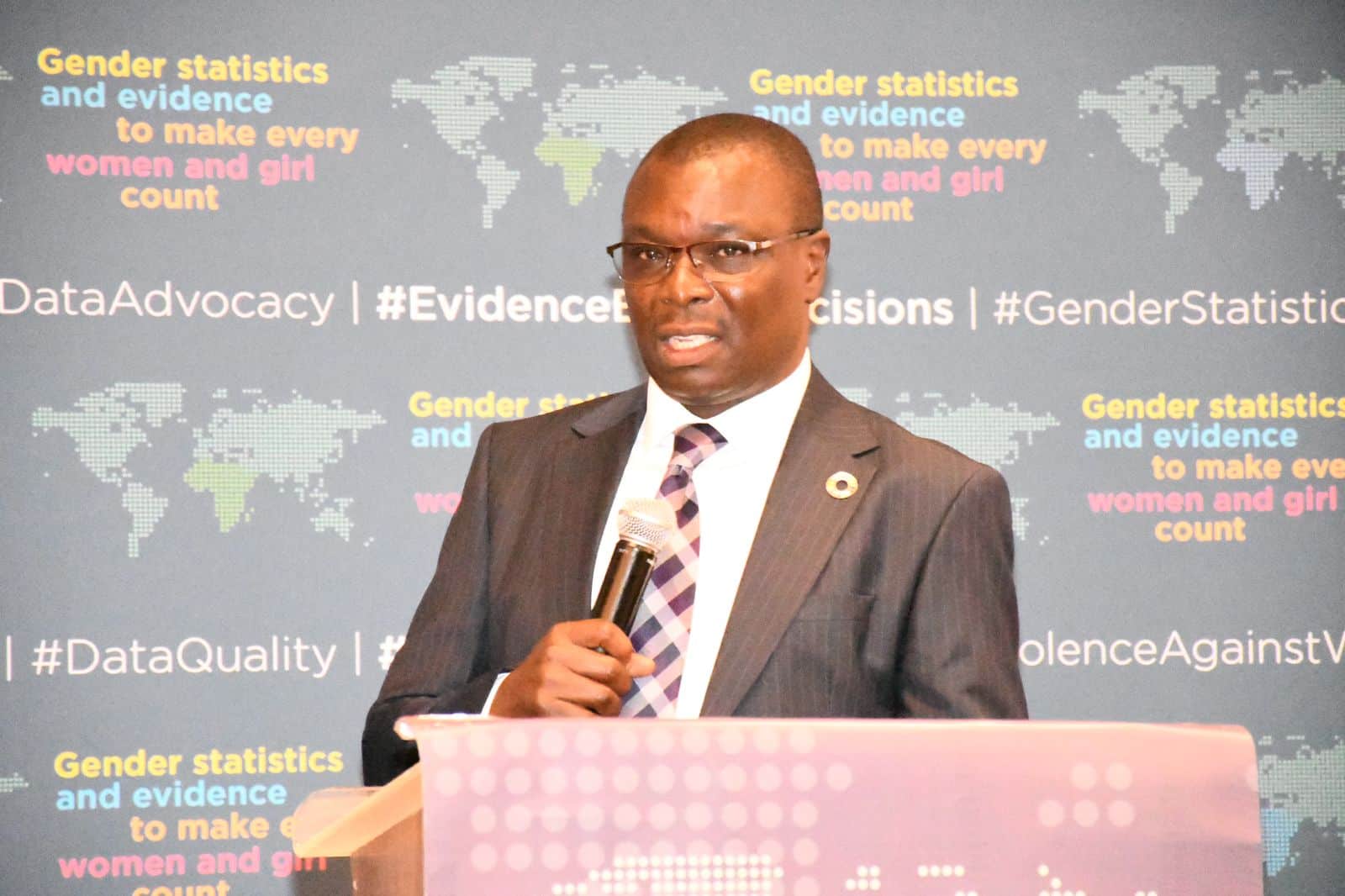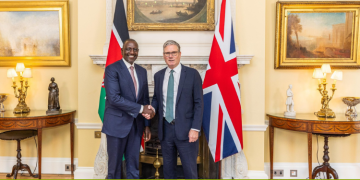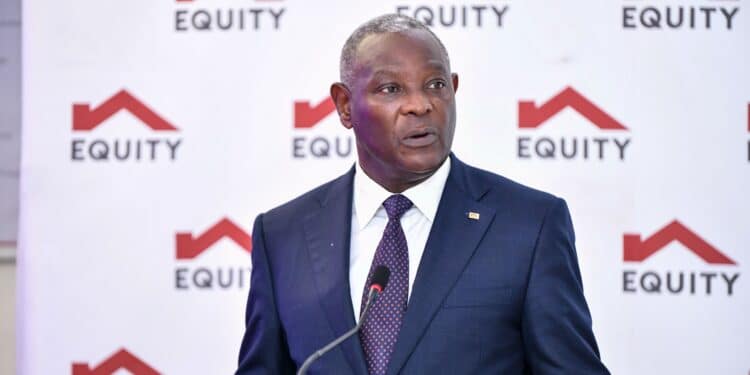The Equity Group Holdings Plc (EGH) has recorded a 12% increase in profit after tax in the first half of the year 2024.
In a statement dated August 12, the Group said it has recorded a half-year Profit after Tax of Ksh29.6 billion representing a 12% year on year growth, with earnings per share increasing to Ksh7.6 up from Ksh6.7.
“Regional subsidiaries accounted for 50.2% of the profit before tax for the period. This performance is coupled by strong capital buffers with core capital ratio of 15.8% and total capital ratio 18.4% versus regulatory threshold of 10.5% and 14.5% respectively,” the statement read in parts.
While releasing the half year results, Equity Group Holdings Managing Director and Chief Executive Officer, Dr.James Mwangi, said the increase comes against a backdrop of continued macroeconomic headwinds of high interest rates and volatile exchange rates across the markets that it operates in.

Equity recorded a balance sheet growth of 6% which is above the prevailing inflation rate of 4%, bringing its total assets as of 30th June 2024 to Ksh1.75 trillion with the regional subsidiaries accounting for 49.7%.
“We are proud that the Group has sufficient cushion on its key balance sheet buffers being liquidity, capital and NPL coverage while at the same time it continues to report above industry profitability metrices with return of average equity of 26.7% and return on average assets of 3.4%,’’added Dr. Mwangi.
Equity Named Second Best Bank in Africa
The Group, which has been named as the top financial brand in Africa and the second strongest banking brand in the world and backed by its motto of ‘’Growing Together in Trust’’ has seen its deposit franchise grow by 11% year on year to Ksh1.3 trillion with its customer base now at 20.7 million.
This growth in deposits has resulted in a 55% increase in cash and cash equivalents to Ksh341 billion and growth in investment securities to Ksh459 billion resulting in an overall strong liquidity position of 57%.
“We are optimistic that the strong liquidity of the Group has positioned us to effectively support our customers as the economy starts showing signs of improvement in the key markets we operate in, signaled by some of the regulators’ reduction of the Central Bank Reference rates. With the improved liquidity, the Group continued to optimize its balance sheet reducing leverage by Ksh75 billion of expensive borrowings,” Mwangi said.
Also Read: Equity Bank’s James Mwangi Signs Landmark Deal With WFP in Italy to Empower Farmers
Shareholders’ funds grew by 13% to Ksh220 billion while the interest income went up by 22% to Ksh84.8billion from Ksh69.8billion.
This saw returns to customers in the form of interest expense grow by 30% from Ksh23.4 billion to Ksh30.4 billion.
“Non-funded income continues to grow steadily increasing by Ksh5 billion and yielding a total income growth of 16% to Ksh95.1 billion, up from Ksh82.1 billion year on year,” read another part of the statement.
Additionally, loan loss provisions grew by 35% to Ksh8.5 billion retaining the NPL coverage at 70% with a Non-Performing Loans (NPL) ratio of 12.9%. This is way below the latest published industry average of 16.3%.
Investment in Infrastructure
The Group’s continued investment to modernize its infrastructure coupled by high inflation has seen its expenses increase by 27%.
“The Group’s transformation goes beyond regional and product offering diversification, to a technology led and enabled business under One Equity offering, that enables self-services with unparalleled convenience and case based on freedom of channel choice,” read the statement.
“Digital channels dominate with 84% of transactions, Agency channels process 9% of transactions while ATMs and Merchant acquiring each process 2% of transactions and branches handle only 3% of transactions.”

The Group’s Brand
Besides, the Group has developed an iconic brand and was ranked one of the most valuable in the Nairobi Securities Exchange (NSE) and Africa’s top banking brand.
The Group’s impact continues to be felt in climate action, where the International Finance Corporation (IFC) recognized Equity as having the highest number of climate finance eligible transactions, most of which were in climate adaptation and mitigation in agriculture.
“Despite the challenging environment, Equity has chosen to operate in a sustainable manner. In the coming weeks the Group will release its third sustainability report that highlights the Group’s approach to embed Sustainability in its strategy by becoming an early adopter of Taskforce for Nature Finance Disclosure in Africa, demonstrating not only a sustainability focus on customer level but also supporting nature restoration by having achieved 29.5 million trees planted. The Group continues to take a leading role in climate finance through extending over Ksh26 billion in the form of climate finance,” Dr. Mwangi said.
Also Read: Equity Bank Awards Scholarships to 82 Kenyans to Top Universities and Ksh200 K Token
Partnerships & CSR Programs
Equity has also partnered with Microsoft and Mastercard Corporation to digitize 10 million customers under the community pass initiative.
On August 8, the Group commissioned 113 Equity Leaders Program (ELP) scholars from Kenya, Rwanda, Uganda and DRC who have received full scholarships to pursue their university education in various global universities across the world.
The scholarships, worth Ksh2.8 billion saw 13 students admitted to Ivy League universities, bringing the total number of Equity Leaders Program Scholars who have attended the Ivy Leagues to 204.
However, the total number of scholars that have attended global universities through this program is 970.
Equity Group Foundation has offered customized capacity building programs to 570,006 Micro and Small Enterprises (MSMEs) that received Entrepreneurship training.
A total of Ksh355.4 billion has been disbursed to 305,771 MSMEs under the Young Africa Works Program which has created at least 1.3 million jobs for young people.
Follow our WhatsApp Channel for real-time news updates!
https://whatsapp.com/channel/0029VaB3k54HltYFiQ1f2i2C










































































